Potty Training Age: When’s the Right Time to Start?
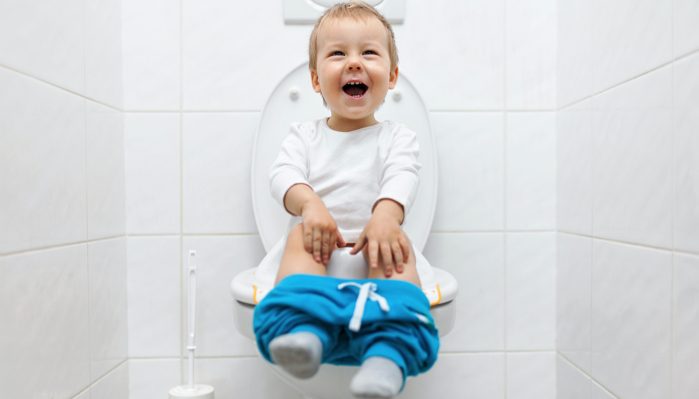
- Children show signs of potty training readiness between 24 and 36 months old.
- Resist rushing your child into potty training. Your child may encounter unnecessary roadblocks if you start too early.
- Consider implementing pre-potty training strategies. The potty will not be so daunting if you familiarize your child with it first.
- Choose your potty training method according to your family dynamic, your availability, and most importantly, your child’s developmental milestones.
You decided that you’ve changed your last diaper. As you try not to inhale the fumes emanating from your child’s bottom, you imagine what lies beyond the land of wipes and diapers. Now you’re wondering: Has your child reached potty training age?
This may be an unprecedented time for your family where you, as the parent, initiate a milestone rather than your child. While research studies and statistics provide a glance into potty training, your child is still an individual doing everything (and his best) in his own time.
Age is only one of the components that goes into potty training. There’s also body awareness, self-control, motor skills, verbalization, and protocol.
Before you embark into the world of potty training, keep your expectations in check. (Accidents will happen.) Potty training demands not only vigilance but consistency, patience, and empathy towards your child.
Once all these things are in place, you’ll feel as though a huge wet diaper has been lifted off your shoulders.
What is the Best Age to Start Potty Training?
You can expect your child’s pediatrician to mention potty training at the 18- or 24-month well visit. The “best age” to start potty training will depend on your child.
If you’re wondering about gender-specific readiness, keep the following in mind:
- Girls typically show potty training readiness a bit earlier than boys.
- Boys and girls exhibit the same signs of readiness, such as showing interest in the potty or going longer periods with a dry diaper.
- Regardless of gender, the average age at which children start the process is when they’re at least 27 months old.
Curious about age-specific readiness? It’s important to know about the challenges that go with potty training depending on your child’s specific developmental stage. Here’s a breakdown of various ages and potty training methods:
Can you potty train an infant?
It can be done and has been done for ages in some traditional societies, including in Africa and Asia. You’re required to pay extra close attention to your baby’s elimination cues while you keep him diaperless.
When you detect a cue, you hold him over the toilet to let him pee or poop. Part of the process is to teach your child a specific sound that you utter just before he goes potty.
Can you potty train a 6 month old?
Around 6 months old, babies are usually able to sit up without assistance. According to the Potty Sitting method, babies are ready to potty train as soon as they can sit up unaided. The method states that babies at this age are less resistant to training compared to potty training toddlers.
Can you potty train a 1 year old?
By this age, toddlers may know how to walk. Some may even know how to run (invariably in the opposite direction)! With their newfound motor skills and freedom, they would do anything else except sit on the potty chair, never mind stay on it. This may test your will and patience.
Forcing your child to sit and stay on the potty will only conjure negative associations with potty training. Employ positive reinforcement by motivating your child with encouragement and praise.
Between 18 and 24 months, children are usually more willing to sit on a potty. If your child is in this age range, take this opportunity to introduce pre-potty training. This includes reading books to your child about the potty or allowing him to observe family members use the toilet in the bathroom.
Can you potty train a 2 year old?
Most 2-year-olds are developmentally advanced enough to build the skills for potty independence. They may be able to pull their pants up and down, wipe, and wash their hands. Keep in mind that your child may still require your assistance with all of these steps until they’re around 3 years old.
Can you potty train a 3 year old?
Potty training a 3-year-old is all about reminders and consistency. By implementing a potty training schedule, you can take him to the potty at set times throughout the day. A potty training watch may also come in handy to remind your child to go.
You can also introduce naked potty training, ideally if your floors are uncarpeted. Entice your big kid with potty training rewards, and be sure to provide support with plenty of hugs and encouragement.
Can you potty train a 4 year old?
Most boys and girls can control their bladder and bowels by the time they’re 3 or 4 years old. Potty training at night may come easier at this age.
Can you potty train a 5 year old?
Most 5-year-olds are fully potty trained. If your child is not potty trained by this age, make sure the pediatrician has ruled out any physical, developmental, or mental conditions. Medical conditions such as urinary tract infection or constipation may also affect potty training progress. If it’s not any of the above, ask yourself these questions:
- Does he know how to use the potty?
- Does he refuse to use the potty?
- Do you tend to pressure or nag him to use the potty?
If you’ve answered “yes” to any of the questions, you might have entered a power struggle with your child.
If your child is older and not potty trained, the American Academy of Pediatrics offers possible reasons. Perhaps you preferred that your child led his interest in starting potty training, but it hasn’t quite happened yet. Your child might have been trained at one point but regressed after a significant life event, which may include the arrival of a new sibling or move across the country.
Keep your child’s pediatrician informed of your concerns so you can receive support.
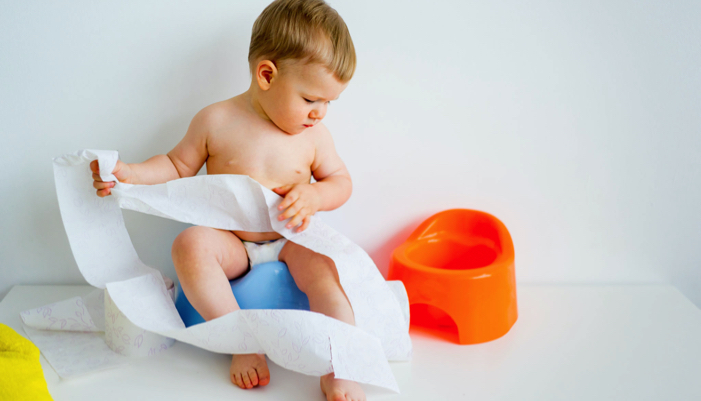
How Do You Know When Your Child is Ready for Potty Training?
According to the American Academy of Pediatrics, your child may be ready for potty training when he reaches a combination of behavioral, cognitive, and physical milestones. These include:
- Walking and sitting
- Pulling pants up and down
- Showing interest in the potty
- Maintaining a dry diaper for up to 2 hours
- Exhibiting discomfort with a soiled diaper
- Requesting “big kid” underwear
- Following basic instructions
- Responding to simple questions or explanations
- Showing awareness of bodily functions (i.e. either hiding in a corner or announcing he’s going potty)
You can ensure further success in potty training if the following components are present:
- The family atmosphere is relaxed. If you start potty training during a challenging time, your child may connect his training with stress, conflict, or sickness. This may cause your child to become resistant to potty training.
- Your child is not experiencing any medical issues, such as urinary tract infections, constipation, or diarrhea.
- You have the availability and time to watch for your child’s elimination cues.
- You’re not in a rush. Your child may not respond well if you pressure or hurry him to become potty trained.
If you ticked most of the boxes, your child may be ready to start potty training!
How Do You Know if Your Child is Not Ready for Potty Training?
You may be ready for your child to start potty training, but he may not be ready if:
- He’s unbothered by soiled diapers. Your child’s apathy towards a diaper full of pee or poop could signal a lack of motivation in potty training.
- The potty doesn’t interest or spark curiosity. Children who are ready to potty train tend to investigate how grownups use the toilet. If your child couldn’t care less, he might not be ready.
- The potty terrifies him. The sound of a toilet flushing can be loud, sudden, and scary for kids. Think how daunting it can be potty training in public bathrooms!
- He’s unable to pull his pants up or down. This is a prerequisite skill, especially when it’s urgent!
- He’s stressed out. If you’re moving or expecting a new baby, your child is exposed to the stress of big life changes. He may even respond with meltdowns or unusually high emotions. Consider waiting until things settle down until you start potty training your child.
How Do I Know If I Started Potty Training Too Early?
You’ll know that you started potty training too early if:
- Your child only urinates 2 to 3 times per day. Children should pee at least 5 or 6 times per day or every 2 to 3 hours.
- Your child doesn’t have regular bowel movements. Your child should poop at least once a day.
- The relationship with your child feels strained. If your child wasn’t ready to potty train and he sensed your frustration, he may become anxious around you. Your child doesn’t want to let you down.
If you potty train too early, the following problems may occur:
- Your child may hold his pee or poop—but don’t mistake this as being potty trained. Some children resist using the potty by holding urine and stool for too long. This behavior tends to cause urinary tract infections and constipation.
- Your child may experience daytime wetting.
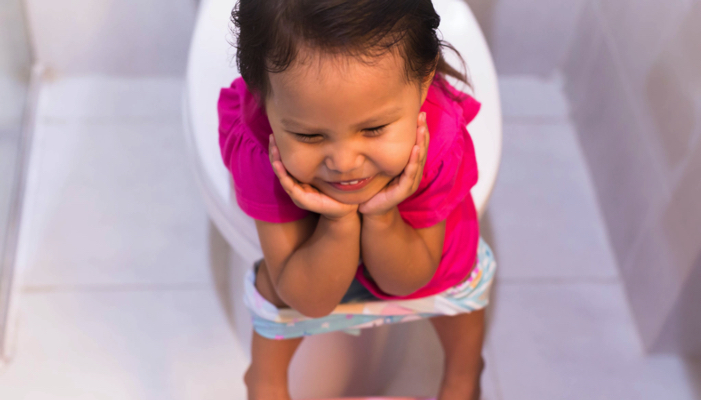
What Age Should a Child Be Fully Potty Trained By?
The definition of a “fully potty trained child” is two-fold: He is able to recognize the need to pee or poop, and he has the ability to use the toilet with minimal or no assistance.
The American Family Physician states that 40-60% of children are fully potty trained when they’re 36 months old. Girls usually complete potty training about 3 months earlier than boys.
Here’s a framework of potty training averages:
- Under 18 months: Will require much assistance even after being trained
- 30-36 months: Can stay dry throughout the day
- 34-48 months: Can stay dry throughout the day and night
- 4-6 years old: May continue to need help with using public restrooms and wiping
Some children become fully potty trained within a few days. For others, it may take weeks or months.
Children who have shown signs of readiness take around 3 to 6 months to become potty trained. This time length varies and depends on the readiness of your child. If you start training too soon, the process may take longer.
Keep in mind that even fully potty trained children can still experience accidents or regressions.
At What Age Should a Child Stop Wearing Diapers at Night?
Most kids stay dry through the night when they’re 3.5 or 4 years old. However, it’s common—and normal—for children to wet the bed up to age 7.
Many toddlers sleep up to 12 hours at night. They require the physical development of bladder control to stay dry all night.
Around 75% of 5-year-olds stop wearing diapers at night. Beyond this age, a small bladder can make it challenging to keep diapers off. There are also instances where children can sleep so deeply that they don’t wake in time to go to the potty.
Is It Ever Too Late to Potty Train?
If your 5-year-old has yet to start potty training, consider giving it a try. After age 5, children have a higher risk of developing bladder problems. There may also be increased occurrences of wetting themselves during the day, called daytime incontinence.
FAQs
What is the quickest potty training method?
The 3-day potty training method is the quickest method. Children as young as 18 months old can learn this method, if they show readiness signs.
How can I prepare my child for potty training?
You can ensure potty training success by preparing your child:
- Explain why and how you use the toilet.
- Decide on the vocabulary your child will use for toileting actions (i.e. “pee,” and “poop”).
- Have him practice sitting (and playing) on the potty chair.
- Ask him to sit on the potty when you detect his elimination cues.
- Empty your child’s poop from his diaper. Explain that poop goes in the toilet.
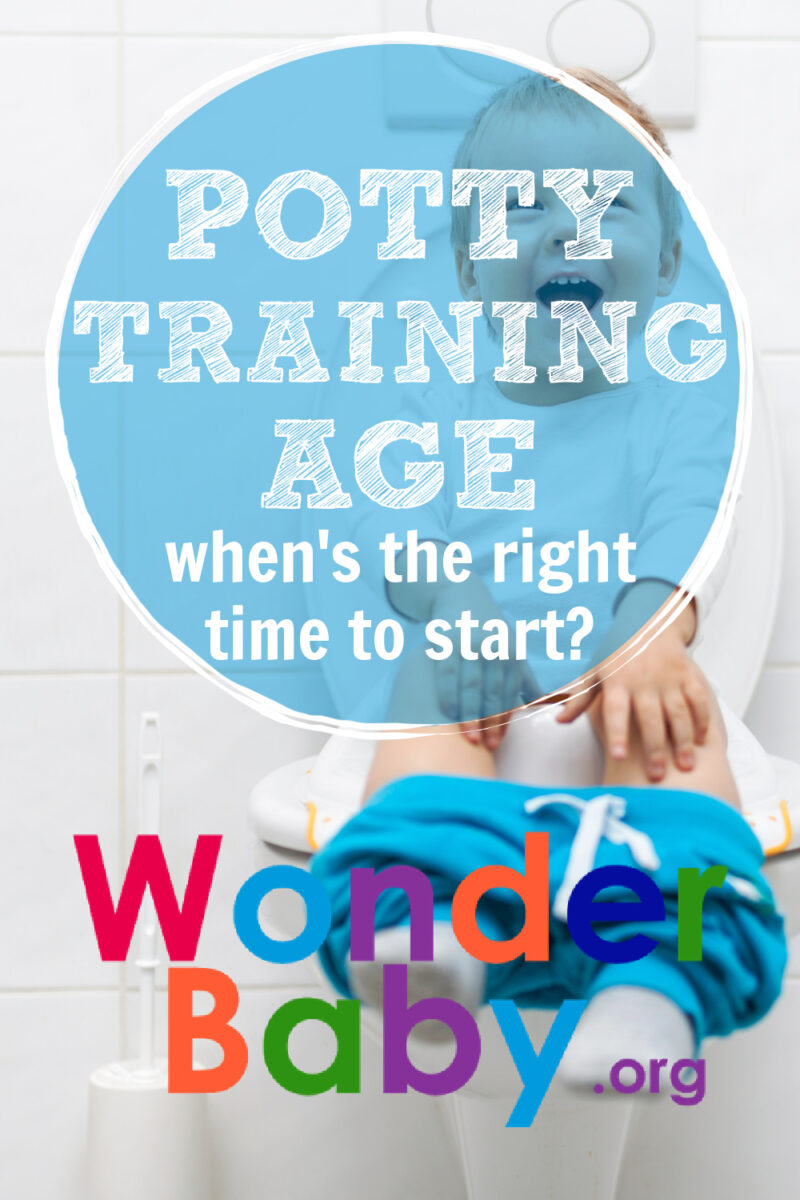
Related Posts
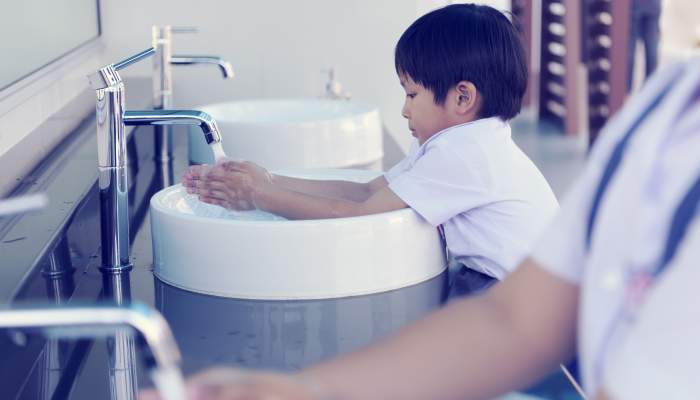
IEPs, Potty Training
7 Sample Toileting IEP Goals
Toileting IEP goals should address the specific needs and abilities of each child. Be flexible and patient as your child works on their toileting skills.
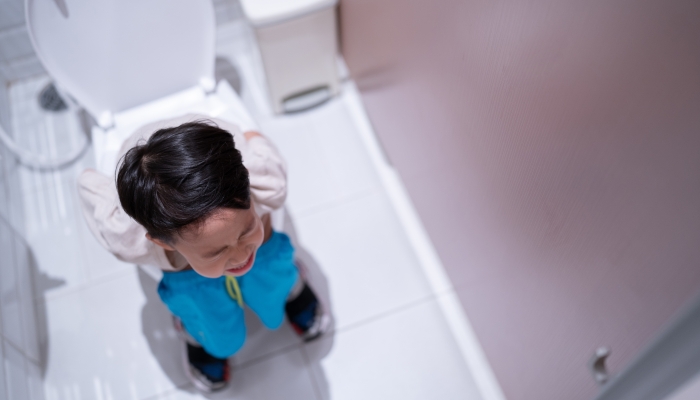
Potty Training
How To Deal With Constipation When Potty Training
Constipation is common amongst children of potty training age. Many children suffer from potty training constipation, but there are things you can do to help.

Potty Training
5 Potty Training Games To Make Potty Training Fun
Learning to use the toilet doesn’t have to feel like hard work. There are lots of potty training games you can play with your toddler to make learning fun.